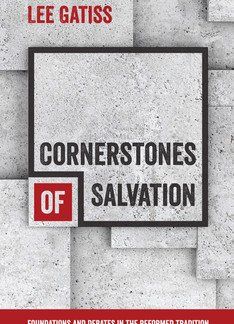The title of this book quotes a phrase used in the text just three pages from the end. In a chapter examining John Wesley’s campaigns against Calvinism, Dr Gatiss warns that adulation for Wesley, merely on the grounds God used him greatly, is ill-advised when the content of his gospel is studied closely. Predestination, justification, and sanctification ‘are the cornerstones of salvation’, and Wesley’s theology not only attacked the first, but threatened to undermine the other two.
The book ends as it began, investigating a controversy from church history. Chapter one concerns Luther’s debate with Erasmus over the freedom or bondage of the fallen human will.
The writer highlights the inexcusable rhetoric of both Luther and Wesley, from a standpoint of sympathy for the first and disagreement with the latter. The book’s final sentence is: ‘We should not excuse or ignore reprehensible behaviour in the heroes of the past, because to do so only encourages it in the heroes of the present (and their imitators)’ (p.229).
That comment epitomises one of the book’s major strengths: it makes challenging contemporary applications of events in church history. The author’s basic position may be summed up in the opening sentence of his final chapter: ‘The Reformed faith is no arid intellectual curiosity, but was meant to be preached and lived with passion and conviction’ (p.202).
Cornerstones of salvation consists of eight chapters, each of which is an essay on some aspect of the Reformed faith. Each chapter is self-contained, except for two chapters documenting diversity within formative Reformed thought on the extent of the atonement. I found these highly instructive, being introduced to varied nuances within early Reformed thinking which were new to me.
Earlier chapters study Calvin’s teaching on union with Christ and re-assert the Reformed doctrine of justification by faith over against its misrepresentation in the so-called ‘New Perspective’ teaching.
Also recounted is the story of a lesser known Archbishop of Canterbury, Edmund Grindal, who was prepared to be sidelined over his stand for the training of the clergy as effective gospel preachers. Elizabeth I wanted all clergy simply to read sermons from prepared books of homilies rather than to study God’s Word for themselves and apply it pastorally to their congregations.
Dr Gatiss spots a parallel today in the tendency for some preachers to rehash the sermons of celebrities posted online. Indeed, believers sometimes find their most significant spiritual input from internet sermons rather than valuing the ministry of their own pastors. The latter know and love them, are aware of the context in which they live and are therefore more able to apply God’s Word in a relevant way.
Chapter seven outlines Puritan debates on the issue of infant baptism. I found the arguments for infant baptism in this chapter cogent (and I speak as a Baptist!). All in all, this is an excellent book, which makes church history come to life.
Jonathan Bayes
Thirsk







